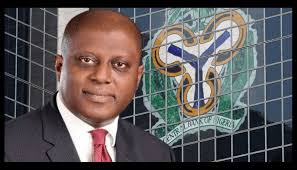By Milcah Tanimu
The Central Bank of Nigeria (CBN) has announced a significant increase in foreign exchange (FX) inflows during the first quarter (Q1) of 2024, amounting to 136 percent of the total inflows recorded in 2023. Blaise Ijebor, representing Olayemi Cardoso as the director of risk at CBN, attributed this surge to major reforms aimed at liberalizing the foreign exchange markets.
Speaking at The 8th edition of the Vanguard Economic Summit in Lagos, themed ‘Reforms In The Era of Global Economic Uncertainties: Whither Nigeria?’, Ijebor highlighted that these reforms have enhanced transparency, reduced arbitrage opportunities, promoted stability, and improved liquidity in the FX market. He also mentioned the successful settlement of all valid FX backlogs, which has boosted stakeholder confidence.
According to data obtained from FMDQ’s website, FX inflows into the Nigerian Autonomous Foreign Exchange Market (NAFEM) surged to a five-year high in March, reaching $3.75 billion. This increase, representing a 41.7 percent rise from February, reflects improved investor confidence driven by the central bank’s reforms.
Of the total transactions, local sources accounted for 59 percent, while foreign sources contributed 41 percent. Inflows from local sources rose by 43.2 percent to $2.21 billion in March compared to February.
Addressing concerns about inflation, Ijebor acknowledged that high inflation in Nigeria is influenced by various factors, including food inflation, rising transportation costs for farm produce, infrastructure constraints, security challenges in food-producing regions, and exchange rate fluctuations affecting imported goods’ prices.
The CBN remains committed to a transparent and functional FX market based on market-driven frameworks to ensure long-term stability of the naira. Efforts are underway to tie monetary policy to address inflationary pressures, with early signs of success evident in declining headline and food inflation rates based on March figures.
Representatives from the government also highlighted efforts to attract investment and ensure sustainable economic growth. Tope Fashua, Special Adviser to the President on the economy, emphasized the administration’s commitment to resolving economic challenges, including restructuring loans and promoting sustainable economic development.
As Nigeria aims for positive achievements, improved living standards, higher productivity, and food security, stakeholders remain optimistic about the country’s economic trajectory in the coming years.

